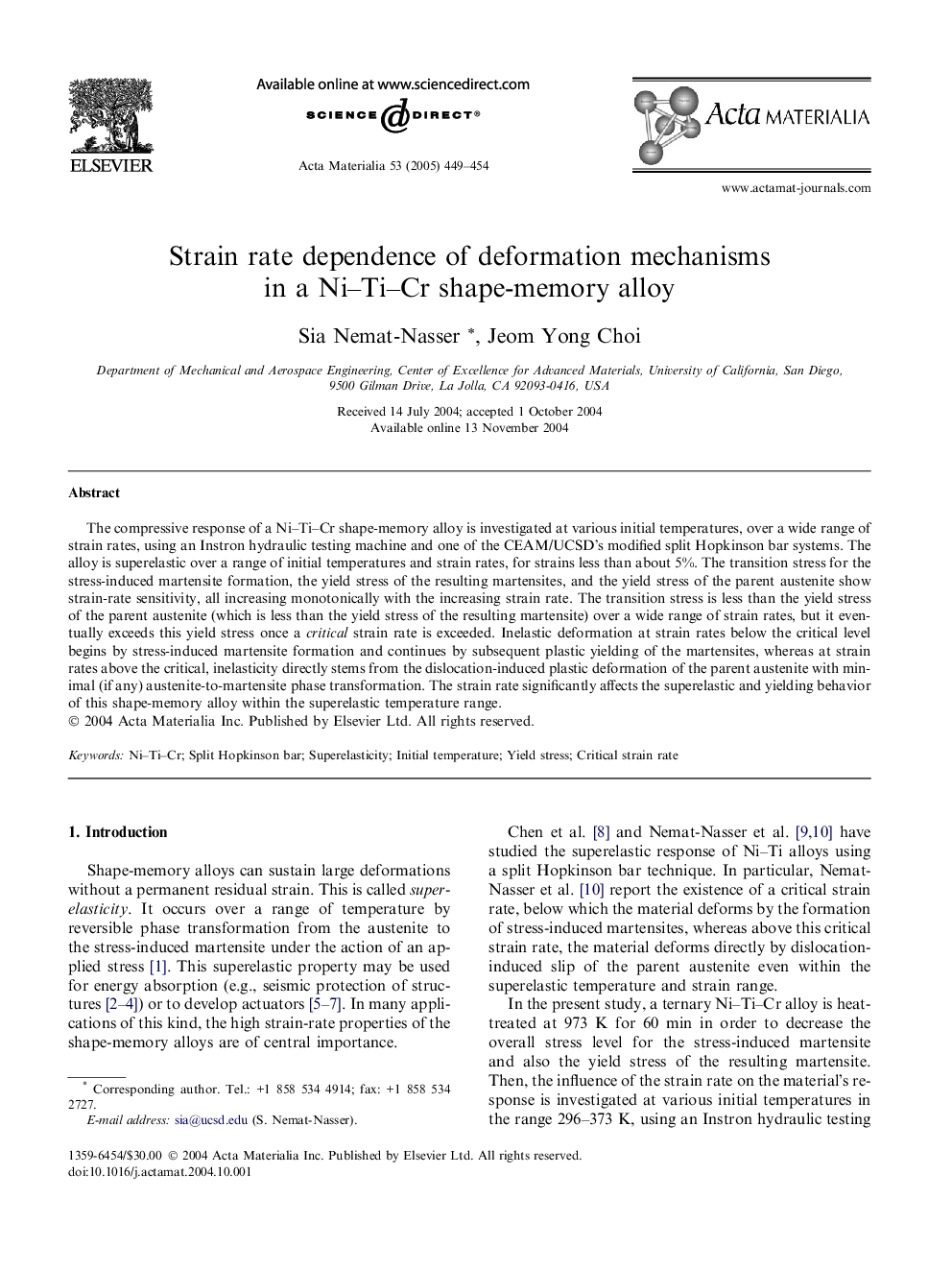| Article ID | Journal | Published Year | Pages | File Type |
|---|---|---|---|---|
| 10620971 | Acta Materialia | 2005 | 6 Pages |
Abstract
The compressive response of a Ni-Ti-Cr shape-memory alloy is investigated at various initial temperatures, over a wide range of strain rates, using an Instron hydraulic testing machine and one of the CEAM/UCSD's modified split Hopkinson bar systems. The alloy is superelastic over a range of initial temperatures and strain rates, for strains less than about 5%. The transition stress for the stress-induced martensite formation, the yield stress of the resulting martensites, and the yield stress of the parent austenite show strain-rate sensitivity, all increasing monotonically with the increasing strain rate. The transition stress is less than the yield stress of the parent austenite (which is less than the yield stress of the resulting martensite) over a wide range of strain rates, but it eventually exceeds this yield stress once a critical strain rate is exceeded. Inelastic deformation at strain rates below the critical level begins by stress-induced martensite formation and continues by subsequent plastic yielding of the martensites, whereas at strain rates above the critical, inelasticity directly stems from the dislocation-induced plastic deformation of the parent austenite with minimal (if any) austenite-to-martensite phase transformation. The strain rate significantly affects the superelastic and yielding behavior of this shape-memory alloy within the superelastic temperature range.
Related Topics
Physical Sciences and Engineering
Materials Science
Ceramics and Composites
Authors
Sia Nemat-Nasser, Jeom Yong Choi,
